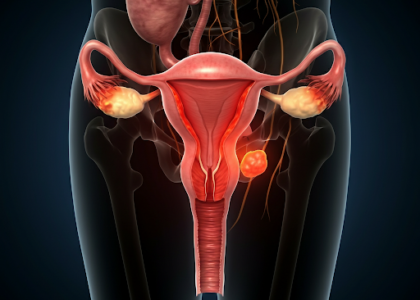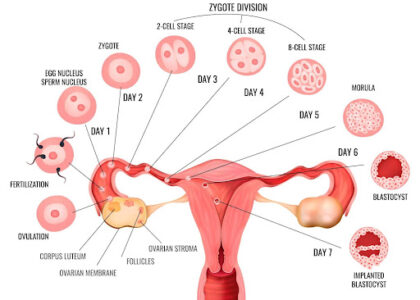While stress may not be a direct cause of infertility, it can have a significant impact on fertility, potentially making it harder to conceive. When we’re stressed, our bodies release certain hormones and respond in ways that can influence reproductive health. Here’s a look at how stress affects fertility and some helpful ways to manage it.
How Stress Affects Fertility
Our bodies are designed to prioritize survival in times of stress, which can sometimes mean deprioritizing processes not essential to immediate survival—like reproduction. Here are a few ways stress can interfere with fertility:
1. Hormonal Disruptions
Stress can lead to elevated cortisol levels, which in turn affects the balance of reproductive hormones. For women, this imbalance can cause irregular menstrual cycles or even ovulation suppression. Men may also experience hormonal changes that affect sperm production and quality.
2. Impacts on Ovulation and Menstrual Cycles
Chronic stress can disrupt the timing of ovulation, making it harder to predict fertile windows. High levels of stress may also lead to irregular or missed periods, which complicates the planning of conception.
3. Lowered Libido
High-stress levels can reduce sex drive in both men and women. This reduction in libido may indirectly affect fertility by decreasing the frequency of intercourse.
4. Reduced Immune Function
Chronic stress is known to weaken the immune system. A weakened immune response may not only affect general health but also interfere with implantation and early pregnancy, possibly increasing the risk of miscarriage.
5. Sleep Disturbances
Stress often interferes with sleep quality, and poor sleep can affect fertility. Proper rest is essential for hormone regulation, immune function, and general health, all of which play a role in reproductive health.
Managing Stress to Support Fertility
Although reducing stress isn’t a cure-all for fertility issues, it can create a healthier environment for conception. Here are some ways to manage stress effectively:
1. Mindfulness and Meditation
Meditation and mindfulness techniques help to calm the mind and reduce anxiety. Practicing mindfulness can help you become more aware of stressful thoughts and manage them better. Just a few minutes each day can make a difference.
2. Regular Physical Activity
Exercise is a powerful stress reliever and also promotes hormone balance. Engaging in moderate activities like walking, yoga, or swimming can help boost mood, reduce anxiety, and improve sleep quality—all of which can positively impact fertility.
3. Healthy Diet
Eating a balanced diet rich in nutrients can help stabilize mood and energy levels. Avoid excessive caffeine and sugar, which can increase stress and mood swings. Opt for fresh fruits, vegetables, whole grains, and lean proteins that support a balanced hormonal environment.
4. Building a Support System
Fertility issues can feel isolating, so it’s essential to have a support system. Whether through friends, family, or support groups, sharing your concerns and experiences can help you feel less alone and reduce stress.
5. Acupuncture and Alternative Therapies
Acupuncture is sometimes used to help with fertility-related issues by promoting relaxation and improving blood flow. Other options, like massage therapy or aromatherapy, can also aid relaxation and may reduce stress levels.
6. Limit Exposure to Negative Influences
Sometimes, social media or constant research can lead to more stress. Limit exposure to sources that might increase anxiety around fertility. Consider taking breaks from social media, especially if it’s affecting your mood.
7. Prioritize Self-Care and Relaxation
Making time for activities that you enjoy—reading, painting, listening to music, or even taking a warm bath—can improve mood and alleviate stress. Embracing self-care doesn’t just boost mental well-being; it also improves your body’s response to stress.
When to Seek Help
If stress feels overwhelming or begins to impact your daily life, it might be time to seek professional help. Talking to a therapist can provide coping mechanisms and a fresh perspective on handling stress, especially when facing fertility challenges.
Conclusion
While stress may not be the direct cause of infertility, managing stress can create a more supportive environment for conception. By finding effective ways to reduce stress, you can improve your overall health, balance hormone levels, and potentially enhance your fertility journey. Remember, taking steps to manage stress is not only beneficial for fertility but also contributes to your general well-being, making you stronger and better prepared for the journey to parenthood.






Recent Comments